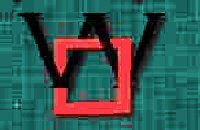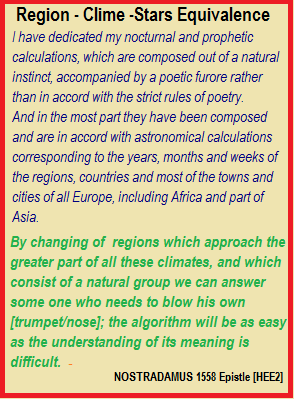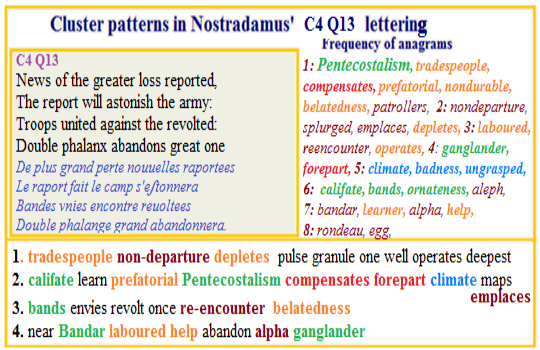 Analyses of all verses
Analyses of all verses
|
 Web Site
Web Site |
 All
Sefirots All
Sefirots |
Nostradamus C4 Q13: A califate exploits gangsters & religious sects to control water supplies
& climate
Copyright: Allan Webber, December 2015, 2022
 This verse has a religious focus as identified
by an anagram in its second line for Pentecostalism.
This verse has a religious focus as identified
by an anagram in its second line for Pentecostalism.
 C4
Q13 is linked to the quote alongside because it contains an anagram for
climate in its second line.
C4
Q13 is linked to the quote alongside because it contains an anagram for
climate in its second line.
This anagram has an extremely low probability of chance formation and that quality encourages its pairing with verse C3 Q77 which is one of three in this series of ten that mentions climate in its text.
That verse has adjacent anagrams for Pentecost vignettes which is also a highly unlikely chance-driven juxtaposition.
The second line of the current verse also has an additional anagram not shown in the verse image given below. The term is poets and it is one of twelve so although it's not rare describes both Nostradamus' medium and the process he identifie as central to his code strategy. Hence it cannot pass unnoticed since this word offers a link to the anagrammatic entry meaning five rows or series that appears in the first pairing in this series .
In this verse the text and anagrams further develops the theme of a religious war in which criminal activity is rife under the governance of a Califate. The language used for the anagrams suggests a period between 1950 and 2100 CE.
Within the anagrams the ones for
Pentecostalism (it le camp s'eſton),
tradepeople (aportees De plu),
compensates (e camp s'eſton),
patrollers (les
raport),
prefatorial (raport fait le),
depletes (tees
DE pl),
gang-lander
(lange grand),
laboured (era Doubl)
and
belatedness (ltees Bandes) are either singular with no other occurrences or have a
maximum of two.

Via the inter-relationships in these and other anagrams shown in the image of the verse alongside, we can sense a mix of crimes involving climate, ownership of wells and withholding of labor.
Each and all of these aspects can influence the progress of a war.
This is not a major part of Nostradamus' vision for our future but just one of the many events he uses to flesh out incidents which he said he included to maintain peoples interest.
However this verse forms the launch pad for developing the social aspect of the period leading up to the religious wars.